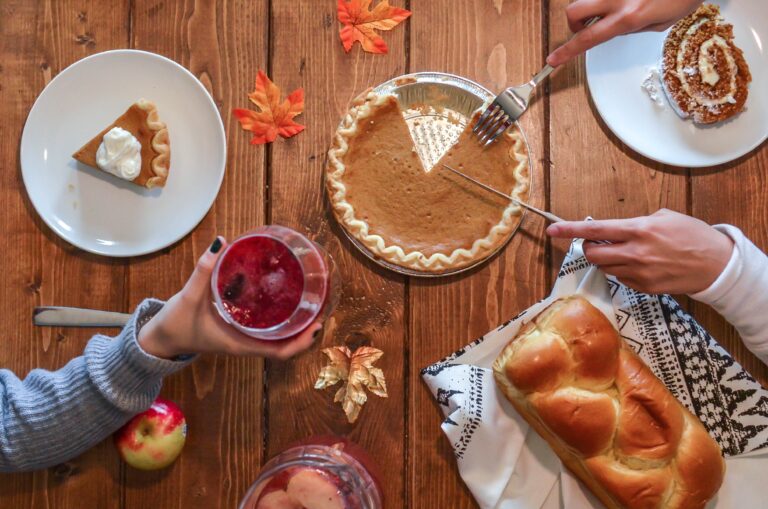Tonight marks the start of Thanksgiving break, a much-needed time for students to rest from the stress of school and breathe a bit. I am so excited to have a little time off, but I am less than thrilled about the reason.
It sounds a little odd, but I will never and most likely never enjoy this holiday. For me, Thanksgiving has hardly stood out among the list of holidays. The food is good but a little overrated. When you compare Thanksgiving to its neighbors’ Christmas and Halloween, I would be okay with it getting lost in the mix.
I have my reasons for disliking the day, mainly the messed up origin we have turned into a form of propaganda, the dreaded family discussions at the dinner table and the over-inflated ceremony surrounding the day.
As kids, we dress up as pilgrims and Indians and do that little skit (you know the one I’m talking about) where we are told that this day bonded everyone and was a ceremony of unity and peace. Essentially, we really gloss over the harsh reality of what transpired. It is simply all a myth we choose to believe, but it is riddled with historical inaccuracies.
Books and countless articles have been written about this, including ones by a George Washington University history professor, David Silverman.
“The myth is that friendly Indians, unidentified by tribe, welcome the Pilgrims to America, teach them how to live in this new place, sit down to dinner with them, and then disappear,” Silverman said. “They hand off America to white people so they can create a great nation dedicated to liberty, opportunity and Christianity for the rest of the world to profit. That’s the story—it’s about Native people conceding to colonialism. It’s bloodless and in many ways an extension of the ideology of Manifest Destiny.”
He elaborates on how the pilgrims’ arrival to Plymouth in 1620 deeply impacted the already existing livelihoods of the Wampanoag tribe, whose lives were forever damaged after this “union.”
“Wampanoags today remember the Pilgrims’ entry to their homeland as a day of deep mourning, rather than a moment of giving thanks,” the Smithsonian Magazine said.
The constant narrative of the “peaceful union” is a repetition of falsehood and only perpetuates the damages inflicted on the Wampanoag Indians.
What we say matters. This should be clear by now. When we promote falsehoods of the day, they have a lasting effect. Using the day to inflate the colonizers seems wrong and perpetuates the damage. With those ridiculous Thanksgiving pageantries, we are essentially indoctrinating a young generation into beliefs of inflated Americanism that they will later have to unlearn.
However, heaven forbid you to bring any of this up at the dinner table because it will turn into a full-on fight with that one relative we all seem to have in common. They help contribute to the annual tension at the dinner table, which is just another perk of the day.
After stomachs are overly inflated, families seem to get very heated over issues we are told never to discuss in day-to-day conversation— politics, religion, and any other uncomfortable topics considerate people would normally avoid.
Admittedly, each family is different, but from my experience and based on what I have seen and heard, it is safe to say this is part of the day many people dread.
I have no idea what is in the food to suddenly encourage such brashness and inconsideration when addressing “loved ones.” We should know that we all do not get along and agree on every issue, especially when we bring in large extended family groups, but the holidays seem to draw the fight out.
I have seen firsthand the distance this creates between once close relatives, which deepens my dislike of the day. It only makes me thankful for it when it is over.
For a holiday that’s supposed to bring out the good and make us reflect and give thanks, all it does is over-inflate a ceremony we could live without.
In American culture, we have lost the essence of community, so we try to cram it all into one day, which is both unhealthy and disappointing. The idea of gathering around and celebrating what we are thankful for is good but, like many good ideas, it gets lost in everything else.
We should not need to celebrate a day when our ancestors essentially ruined thousands of lives as an excuse to gorge ourselves on carb-loaded food and dry turkey. We can gather with loved ones and be grateful any day of the year.
I am not saying that every person should boycott the day or grow to detest it like me, but you should reflect more about the day and not elevate it to a status it does not deserve.




